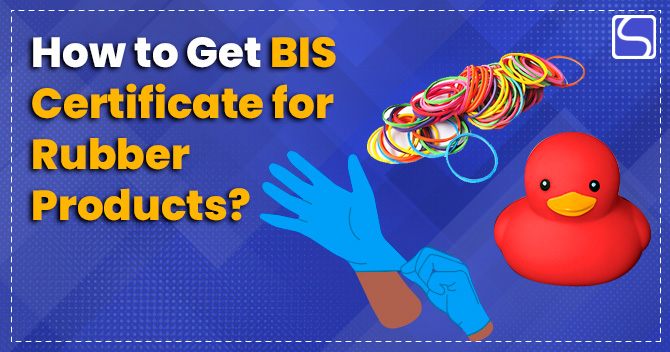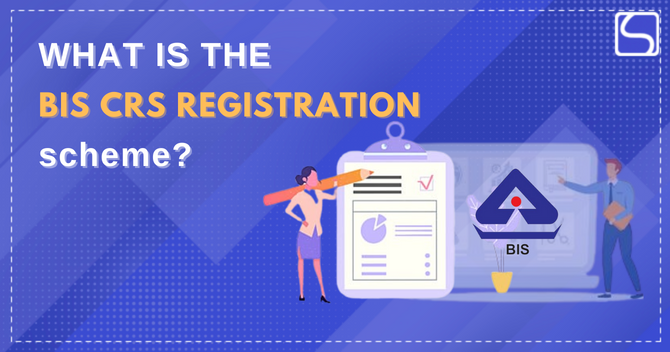BIS Certification for Wires& Cables

Ganesh Nair | Updated: Sep 05, 2022 | Category: BIS
The BIS (Bureau of Indian standards) is responsible for assuring that the products in India attain the statutory standards before entering the market. The BIS has laid down various norms for the manufacturers of wires & cables. Recently the latest IS 17505 (part 1) was published in the gazette in the year 2021. This standard was introduced to address the loss of life and property caused due to fire hazards. That’s why a manufacturer must ensure that the wires & cables attain the standards laid down by the BIS. In this blog, we shall enlist the requirements for BIS certification for wires & cables.
Table of Contents
Benefits of using BIS Certification of wires & Cables
There are many reasons why a consumer should prefer BIS Certified Wires & cables, such as:
- Saves electricity: when you use BIS-certified Wires & cables, you save a lot of money on electricity. A good quality cable allows proper flow of current through it. The quality of materials used to create these wires matters a lot.
- Reduces Electricity accidents: High-quality cables prevent a significant amount of electric accidents. The low-quality wires are not able to handle fluctuation and high heat and often become the reason for loss of property, injuries and death in some cases.
- Increases the life of appliances: The BIS-certified wires and cables utilised in electrical appliances ensure a proper steady flow of electricity. This will increase the life of all the electric appliances with good quality wires.
- Durable: studies have shown that the BIS-certified wires and cables have had a longer life and better performance as compared to others.
Indian Standards for BIS Certification for Wires & Cables.
The tables below denote BIS Certification for Wires & Cables:
| BIS- ISI Standards for Wires | ||
| S.no | Product | Indian Standards |
| 1. | High-strength deformed steel bars and wires for concrete reinforcement | IS 1786:2008 |
| 2. | Low Carbon Galvanized steel wires formed wires and Tapes for armouring of Cables | IS 3975:1999 |
| 3. | Bead Wires for Tyres | IS 4824:2006 |
| 4. | Stainless Steel Wires | IS 6528:1995 |
| 5. | Steel Wires for Mechanical Springs- Part 4: Stainless Steel Wire | IS 4454 (Part 4): 2001 |
| 6. | Steel Wire For Banding Of Armatures And Rotors Part II Specific Requirements for magnetic banding wires | IS 8510 (Part II): 1977 |
| 7. | Tinned Steel Wire For Banding Of Armatures And Rotors Part III Specific Requirements for non-magnetic banding wires | IS 8510 (Part III): 1977 |
| BIS- ISI Standards for Cables | ||
| S.no | Product | Indian Standards |
| 1. | PVC insulated cables for working voltages up to and including 1100V | IS 694 |
| 2. | Elastomer insulated cables (Part.1): For working voltages up to and including 1100 V | IS 9968 (Part 1) |
| 3. | Specification for PVC Insulated (Heavy Duty) Electric Cables Part 1 For Working Voltages up to and Including 1100 V |
IS 1554(Part 1) : 1988 |
| 4. |
Specification for PVC Insulated (Heavy Duty) Electric Cables Part 2 For Working Voltages from 3.3 kV up to and Including 11 kV | IS 1554(Part 2) : 1988 |
| 5. | Specification for Crosslinked Polyethylene Insulated PVC Sheathed Cables Part 1 for working voltages up to and including 1100 V | IS 7098 (Part 1) : 1988 |
| 6. | Crosslinked polyethene insulated Thermoplastics sheathed cables – Specification Part 2 for working voltages from 3.3 kV up to and including 33 kV | IS 7098 (Part 2) : 2011 |
| 7. | Cross-Linked Polyethylene Insulated Thermoplastics Sheathed Cables Part 3 For Working Voltages from 66 kV Up to and Including 220 kV | IS 7098 (Part 3) : 1993 |
| 8. |
Aerial Bunched Cables – For Working Voltages Up to and Including 1100 Volts – Specification |
IS 14255 : 1995 |
| 9. | Specification for Elastomer Insulated Cables Part 2 For Working Voltages form 3.3 kV Up to and Including 33 kV | IS 9968 (Part 2) : 2002 |
| 10. | Specification for Thermocouple Compensating Cables |
IS 8784 : 1987 |
| 11. | Welding Cables – Specification | IS 9857 : 1990 |
| 12. | Elastomer Insulated Flexible Cables for Use in Mines – Specification | IS 14494: 2019 |
| 13. | Specification for Flexible Cables for Miner’s Cap-Lamps | IS 2593: 1984 |
| 14. | Specification for Shot Firing Cables (for use other than in shafts | IS 5950: 1984 |
| 15. | Halogen Free Flame Retardant (HFFR) Cables for Working Voltages Up to and Including 1100 V – Specification | IS 17048: 2018 |
| 16. | Thermosetting Insulated Fire Survival Cables | IS 17505: Part 1 : 2021 |
Documents required for BIS Certification for Wires & Cables.
- Documents for Name and address of the office and factory
- Letter of authorisation signed by CEO of the company
- Detailed flow of the manufacturing process
- List of machinery used for production
- Copy of agreement- (if any process is outsourced)
- List of testing equipment
- Original test reports
- Calibration of testing equipment
- Third-party test results (Where ever applicable)
- Details of the raw material
- Copy of Trademark registration
- Map of the location of the factory
- Disposal mechanism for below standard product
Procedure to obtain BIS Certification for Wires & Cables.
An applicant must complete the following steps to obtain BIS Certification for Wires & Cables:
- The applicant must fill in the application by logging on to the BIS portal[1].
- Then the applicant must select the Indian standard for which the product needs to be registered.
- Generate a test for the product and pick a date for inspection of the factory
- The BIS officials shall visit the factory premises and have a look at the manufacturing process and production facility.
- After completion of the inspection, the officials shall draw out random samples for further testing.
- The product shall be tested in a BIS-authorised lab. The lab will test whether the product is upon Indian standards or not and generate a test report.
- The applicant then needs to submit the application, test reports and relevant documents to the BIS office.
- If the BIS officials will find the application and result up to the mark, then the applicant shall be granted BIS certification for Wires & Cables.
- If the BIS officials will find the application and result up to the mark, then the applicant shall be granted BIS certification for BIS certification for Wires & Cables.
Validity of BIS Certification for Wires & Cables.
The BIS certification for wires & cables is valid for up to 2 years.
Conclusion
A manufacturer of wires & cables must get BIS certification. The regulations have 7 Indian standards for wires and 16 Indian standards for cables. The manufacturer must ensure that their product conforms to the norms set by BIS.
Read our Article:BIS ISI Certification for kitchen appliances














